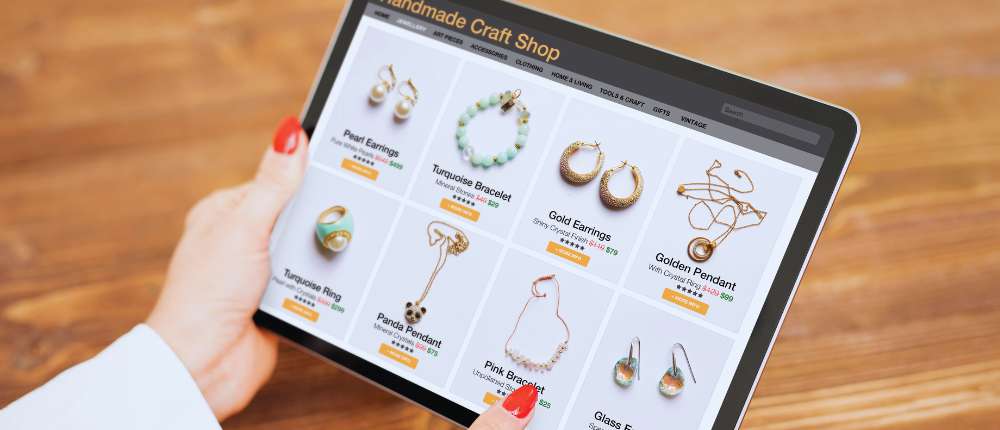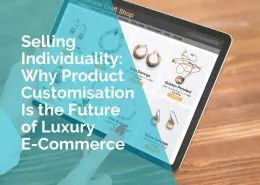Selling Individuality: Why Product Customisation Is the Future of Luxury E‑Commerce
In today’s luxury e-commerce landscape, one trend is reshaping everything from how we shop to how we define value: individuality. Modern consumers don’t just want beautiful products-they want meaningful ones. That’s why custom-designed pieces like black wedding rings are growing in demand. These bold, unconventional choices reflect a broader shift: luxury is no longer about status alone-it’s about self-expression.
From Mass Appeal to Personal Meaning
The idea of luxury as a universal standard-cut diamonds, pristine white gold, classic silhouettes-is quickly fading. Instead, today’s buyer wants options, flexibility, and personal relevance. Product customization enables this, allowing users to participate in the creation process and walk away with something uniquely theirs.
And personalization doesn’t need to be extravagant. Even simple adjustments-metal color, engraving, gemstone cut-create a sense of emotional connection that off-the-shelf products can’t replicate. This feeling of authorship drives both value perception and brand loyalty.
Jewelry as a Leading Example
Few industries illustrate this shift better than fine jewelry. Once defined by tradition and conformity, the sector is now home to some of the most expressive, customizable experiences in e-commerce.
Consider the surge in popularity of black wedding rings. Sleek, unconventional, and full of symbolism, they appeal to consumers looking for designs that stand out-and say something. With online platforms enabling customers to choose stone type, setting, metal, and finish, each ring becomes an extension of personal style.
This ability to “co-create” turns the buying process into something deeper than a transaction-it becomes a story.
The Business Case for Customization
Personalization isn’t just a branding strategy – it’s a revenue driver. Studies consistently show that customers are more likely to purchase, spend more, and return less when they can tailor a product to their liking. Custom products generate:
- Higher conversion rates thanks to increased emotional buy-in
- Higher average order values as customers add on details and upgrades
- Stronger retention through memorable brand interaction
- More user-generated content, like photos and testimonials, for social proof
In the luxury space, where margins are high and every customer experience matters, these metrics are hard to ignore.
Technology Is Making It Possible
The rise of customization is powered by digital innovation. E-commerce platforms are investing in visual configurators, AR previews, and AI-assisted design flows to make personalization both seamless and scalable.
Key tools include:
- 3D product builders with real-time previews
- Augmented reality try-ons via mobile
- Back-end automation for on-demand production and fulfillment
- Recommendation engines tied to style, mood, and purchase history
These tools aren’t just cosmetic-they directly improve conversion by reducing uncertainty and increasing emotional investment.
The Challenge: Customization at Scale
Despite its promise, personalization introduces new operational challenges. Inventory complexity, longer lead times, stricter return policies, and more intensive customer support all require strategic planning.
But for luxury brands-where volume is less important than experience-these trade-offs often lead to a net positive. In fact, newer direct-to-consumer jewelry brands are building their entire infrastructure around flexibility and on-demand production.
Individuality Is the New Exclusivity
The luxury consumer no longer wants what everyone else has. They want what no one else can replicate. Black wedding rings are just one example-bold, distinctive, and infused with personal meaning. In an age of digital sameness, standing out is the ultimate luxury.
Customization delivers exactly that. It turns customers into co-designers, products into stories, and brands into platforms for identity.
Conclusion
Luxury e-commerce is no longer about selling polished perfection-it’s about enabling personal expression. Customization isn’t a trend; it’s a transformation. As consumers seek more ways to express who they are, brands that offer tailored, emotionally resonant experiences-like the ability to design their own black wedding rings-will set the standard for what modern luxury really means.
***
Dmitry Zharkov










